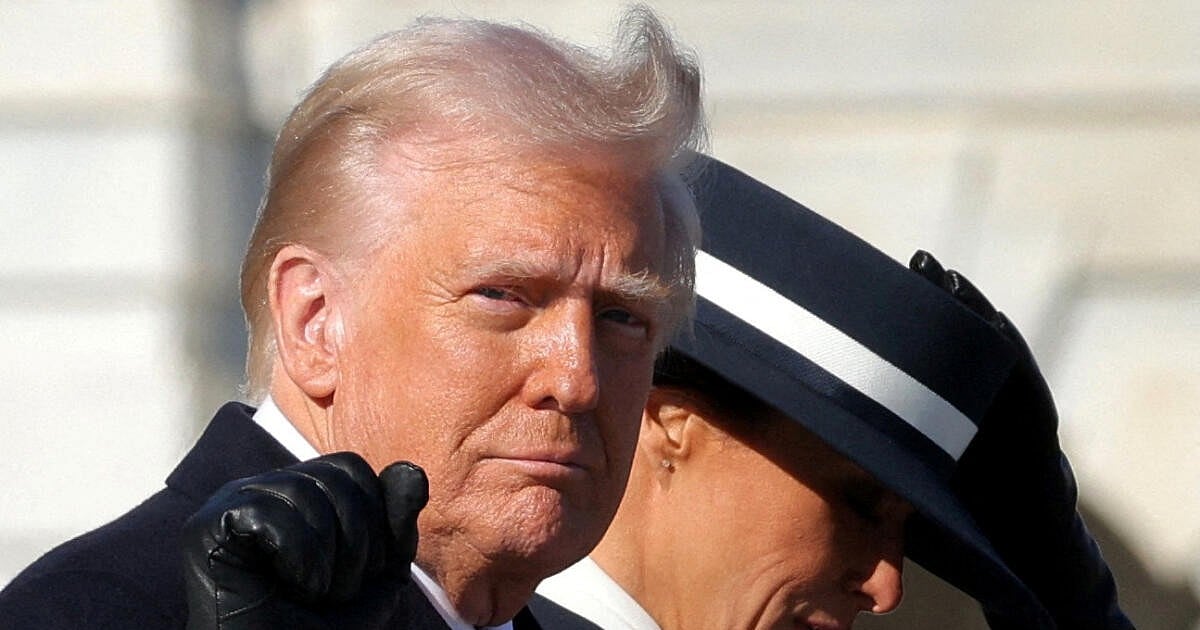 |
|
The recent announcement of new tariffs by the Trump administration has sent shockwaves through global markets, with India's economy bracing for a significant impact. The initial positive sentiment following the release of the Indian federal budget is quickly dissipating as investors grapple with the implications of this protectionist trade policy. The interconnected nature of the global economy means that even seemingly isolated trade disputes can have far-reaching consequences, and India, with its significant reliance on international trade, is particularly vulnerable. The imposition of tariffs disrupts established trade relationships, increasing the cost of goods and potentially leading to reduced consumer demand and slowed economic growth. This ripple effect is felt across various sectors, from manufacturing and agriculture to technology and finance, impacting businesses of all sizes and causing uncertainty in the market.
Indian stock market indexes, closely tied to global economic trends, are expected to experience sharp declines as a result of the tariffs. The uncertainty surrounding the future direction of trade policy adds to the volatility, making it difficult for investors to predict market movements with any degree of confidence. The initial reaction has been a sell-off, as investors seek to protect their portfolios from potential losses. This sell-off is likely to continue in the short term, depending on how the situation unfolds and how governments respond to the trade conflict. The extent of the impact on India will depend on various factors, including the specific sectors targeted by the tariffs, the magnitude of the tariff increases, and the overall response of the global economy.
Beyond the immediate market reactions, the long-term consequences of the tariffs could be even more profound. Reduced trade could hinder India's economic growth and development goals. The country’s ambitious plans for infrastructure development, technological advancement, and job creation could be jeopardized. Furthermore, the increased cost of goods could lead to inflation and erode consumer purchasing power. The government may need to implement countermeasures, such as subsidies or tax breaks, to mitigate the negative effects of the tariffs, but these actions may strain the already stretched public finances. The situation highlights the interconnectedness of the global economy and the vulnerability of even large and developing economies to protectionist trade policies.
The current situation calls for a measured and strategic response from the Indian government. Negotiations and diplomatic efforts to de-escalate trade tensions are crucial. At the same time, it's important to strengthen domestic industries to make them more resilient to external shocks. Investing in innovation, technology, and skills development will be key to fostering greater economic independence and reducing reliance on export markets. The situation also underlines the need for greater regional cooperation among developing nations to create more resilient and less vulnerable trade relationships. The challenge for India is to navigate this complex landscape, mitigate the immediate negative impacts of the tariffs, and build a more robust and sustainable economic future.
In conclusion, the impact of Trump's tariffs on the Indian economy is expected to be significant, causing instability in the stock market and potentially hindering economic growth in the long term. The situation highlights the interconnectedness of the global economy and underscores the importance of proactive and strategic responses to manage trade tensions. India needs to adopt a multi-pronged approach involving diplomatic efforts, domestic economic reforms, and regional collaboration to overcome this challenge and safeguard its economic future.
Source: India indexes tied to global economy brace for sharp cuts after Trump tariffs
